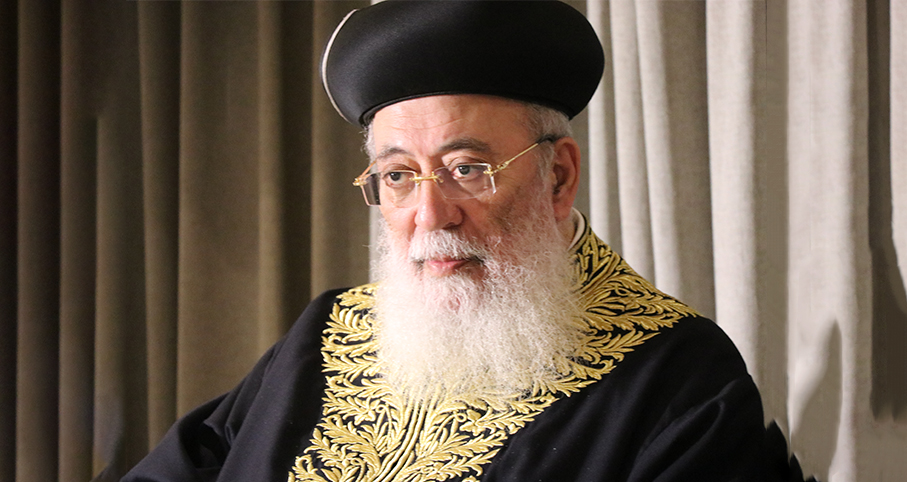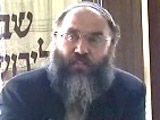- Sections
- P'ninat Mishpat
31
Answer: The concept you refer to can be connected to different sources and framed differently. After doing groundwork, we can relate to what is troubling you.
The gemara in Berachot (64a) says: "One who leaves a shul and enters a beit midrash and is involved in Torah study, merits receiving the Divine Countenance, as the pasuk says: ‘They shall go from chayil to chayil, they will be seen by Hashem in Zion.’" The move from one place/activity to another seems significant, although it is not obvious why (see Yalkut Biurim ad loc., p. 387). The Maharsha (ad loc.) says that chayil refers here to a sizable group of people, which is the best setting for both tefilla and Torah study (Berachot 63b).
The Tur (and Shulchan Aruch, Orach Chayim 155) instructs going to a beit midrash to learn, after Shacharit, before work, citing Torah study’s centrality among the questions asked at a person’s "post-life trial" (see Shabbat 31a; Sanhedrin 7a). The Tur brings this idea, not at the end of the Laws of Tefilla but as part of what he calls "Hilchot De’ot" (practical philosophy), right before the laws of going to work. He instructs to make the learning set , i.e., he keeps to it even if it means losing out on big profits. Proximity to tefilla is not crucial, as the Tur and Shulchan Aruch (OC 155:2) allow those who are used to eating early to push off going to the beit midrash until after breakfast. According to them, it is not a halacha of finishing tefilla but of ensuring Torah learning is prominent enough in his day (see Avot 1:15; Rambam, Talmud Torah 3:7).
The Rambam cites neither the gemara in Berachot (the Rif and Rosh do) nor the Tur/Shulchan Aruch’s instructions. Perhaps he views the former as not phrased as a halachic statement and regarding proper Torah learning, he speaks at length about principles that need not be tied to a specific juncture of the day. In contrast, the Levush (OC 155:1) and Mishna Berura (155:1-2) bring both sources; the Levush says that the combination helps the tefillot to be accepted.

P'ninat Mishpat (770)
Beit Din Eretz Hemda - Gazit
699 - Did He Leave the Elevator Work “Between Floors”?
700 - Learning Right after Shacharit
701 - Extent of Partnership – part II
Load More
These two possibilities can depend on whether the point is to finish the tefilla on the right note (a little Torah might be enough) or to get a good start on the day’s learning (likely calls for a significant amount, as yeshivot do). While the Shulchan Aruch refers to serious learning, the Magen Avraham (155:1) says that if a pressing matter prevents it, one should learn one pasuk or halacha.
Another difference between approaches can be regarding one who does not have time to learn after his minyan but learns before davening. That seems fine regarding Torah learning, but it lacks any special element of going from tefilla to limud. Another difference would be for a full-time learner. If the point is Torah study and he puts in the same amount of time whether he starts learning right away or he eats and takes care of personal matters before learning, the instructions likely do not apply. According to the segula-of-connecting approach, having some learning right after davening might be valuable.
A final question is where it should be done. The earlier sources discuss going to a beit midrash. On the one hand, this was the place of intense Torah study (see Megilla 26b). The walking and setting himself there may itself have value (see Rama ad loc, about one who does not know how to learn going and getting reward for walking). Alternatively, perhaps that was just the norm and is not required; note that the Be’ur Halacha talks of the learning groups in shul.

Buying a Driving School Car
Various Rabbis | 6 Av 5767

When a Couple Both Want the House After Divorce
Various Rabbis | 4 Elul 5767

P'ninat Mishpat: Spillover of Courtyard Dispute
based on ruling 81059 of the Eretz Hemdah-Gazit Rabbinical Courts
Beit Din Eretz Hemda - Gazit | Tevet 5784

Reneging on a Questionably Performed Divorce Settlement
Various Rabbis | 5770

Forgetting a Day of Sefirat Ha'Omer
Rabbi Yosef Tzvi Rimon | 5778

The laws of Chodosh
Rabbi Yirmiyohu Kaganoff | Iyar 11 5779







